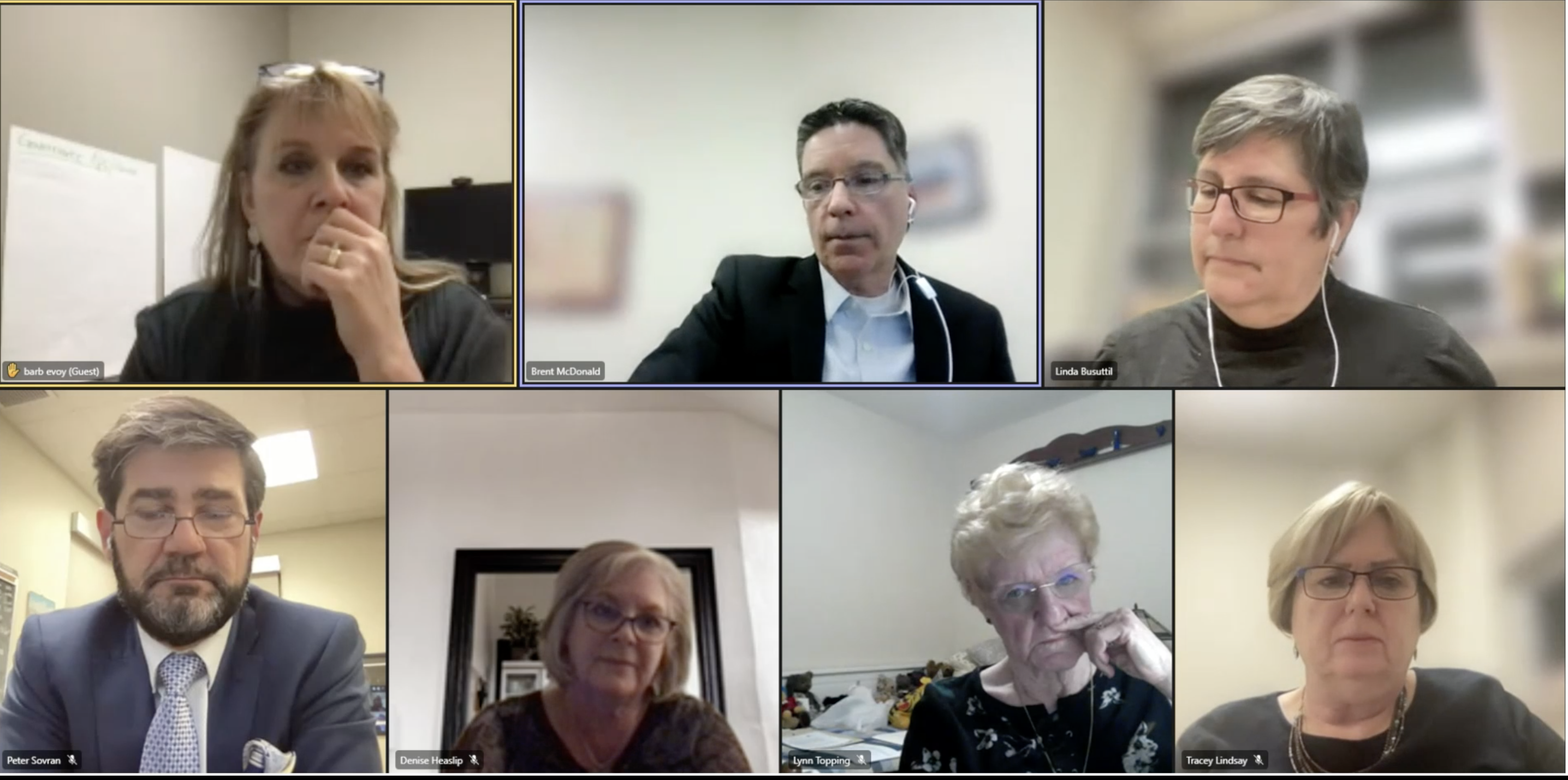GUELPH – A remote learning option for elementary students could become the status quo in the Upper Grand District School Board (UGDSB).
In a Feb. 1 program committee meeting, UGDSB superintendent of education Brent McDonald announced the board will once again be offering elementary students the option to register for remote learning for the entire 2022-23 school year.
The program, which encompasses junior kindergarten to Grade 8, was offered as an option for elementary students in the 2020-21 and 2021-22 school years.
McDonald said the board anticipates the demographics of the elementary remote program will shift from people concerned about COVID, to those that prefer remote learning for their family’s lifestyle or a better fit for their child’s learning style.
“Going forward, we will need to look at why we’re offering remote in the future years and who the target audience is for this model to best determine a program that, in the future, meets the needs of all of our students,” McDonald explained.
He noted the board will also be monitoring to see if the Ministry of Education makes any changes to PPM164, a policy that “governs the requirements for school boards to provide both synchronous and asynchronous remote options for families.”
Administrative support for the remote program, previously based out of Willow Road Public School in Guelph, will be “housed” at Erin Public School – a refresh to the program that “ensures that we have central staff in a location with space for administrative teams and educator staff who may wish to work on site.
“Over the course of the pandemic, we’ve had some flexibility with additional COVID funding to be able to support a separate remote program that is outside of staffing responsibilities within our collective agreements,” McDonald said.
“Going forward we will need to establish a more permanent structure that is sustainable from a financial point of view and also ensure that we remain compliant with our staffing obligations.”
The new location, which McDonald referred to as the “administrative hub of the elementary remote program,” will be the central point of contact for all students enrolled in the elementary remote program.
The board is currently estimating between 400 to 500 students will enrol in the remote program next year, with an estimated 20 to 25 staff members needed to assist. There are currently approximately 1,000 students enrolled in the elementary remote program.
McDonald noted the estimated enrolment numbers are “only predictions at this time and subject to the direction of the pandemic and family choice.”
Similar to the current school year, the board will be asking families to commit to either the in-person or remote learning program for the full duration of the school year.
The board will continue to offer synchronous learning for French immersion as long as the demand for the program remains.
McDonald noted the board will be making a “minor change” to how it offers asynchronous options for students.
“As [enrolment] numbers continue to decline, we will look to imbed these students in classes with synchronous students,” he said.
“The only difference would be that they would access the program being offered asynchronously through their Google Classroom and not be required to participate in the live instruction component,” he added, therefore meeting the current requirements set out in PPM146.
Mirroring a similar process to last year, registration for the remote program will likely take place in the second week of June to allow the board flexibility and time over the summer months to plan appropriately.
Through input reviews, the board recorded that to date over 70 per cent of respondents found the program to be very engaging, with full participation during their time online.
In contrast, 25% found they were engaged at times and sometimes needed more breaks.
“Programming over the past year is due to the input reviews we have received from our families, from staff, and most importantly, from students participating in the program,” McDonald explained.
“We will continue to listen this year and in the future to our students, parents and caregivers to determine what’s working well and what challenges may exist in remote learning so that we can continually learn alongside our families and students and staff and continually strive to do better in our programming.”




